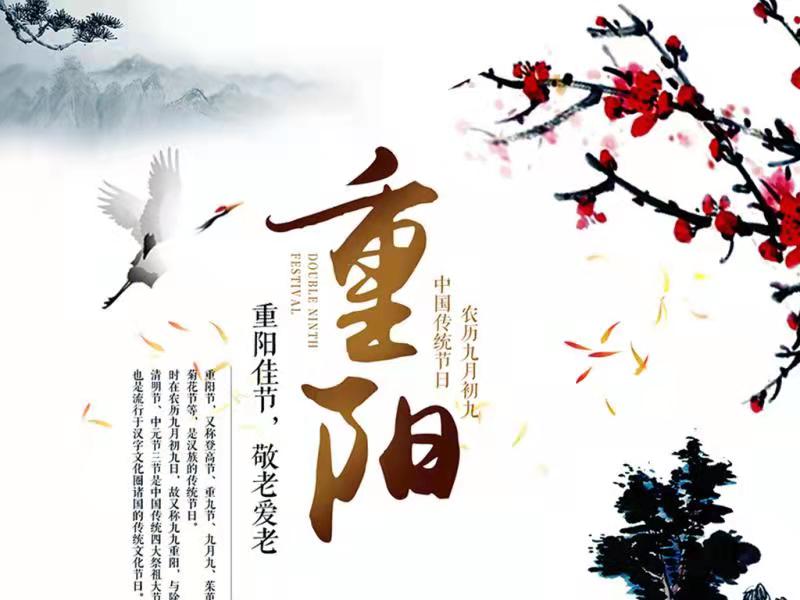The Double Ninth Festival, also known as “the seniors' day”, is a traditional Chinese festival, which is celebrated on the ninth day of the ninth lunar month. The name of the festival, Chòngyáng in Chinese, has a long history. According to The Book of Changes (易经yìjīng), the number “nine” is a number of yang, so the ninth day of the ninth lunar month represents double yang; and also because “double” means “Chong” in Chinese, the day is called the Chongyang Festival, or Double Ninth Festival.

The Double Ninth Festival was originally a festival for sacrificial rites, but then gradually evolved into an entertainment festival with three main activities: appreciating chrysanthemum, wearing dogwoods and climbing mountains. The famous poet Wang Wei in the Tang Dynasty once wrote the following verse: I know my brothers would, with dogwood spray in hand, climb the mountain and think of me so far away. This poem describes the scene of people wearing dogwoods and climbing mountains to look far into the distance on the festival. Nowadays, the Double Ninth Festival has been endowed with the meaning of respecting the aged, and longing for peace and longevity, which is related to the stories of Princess Chongyang fighting against the devil, avenging her mother and honoring her father. This story was recorded in Book of Han (汉书hànshū) and is also inseparable from the tradition of respecting the old and cherishing the young advocated by today’s society in China. In 2006, the Double Ninth Festival was included in the first batch of China Intangible Cultural Heritage List.



